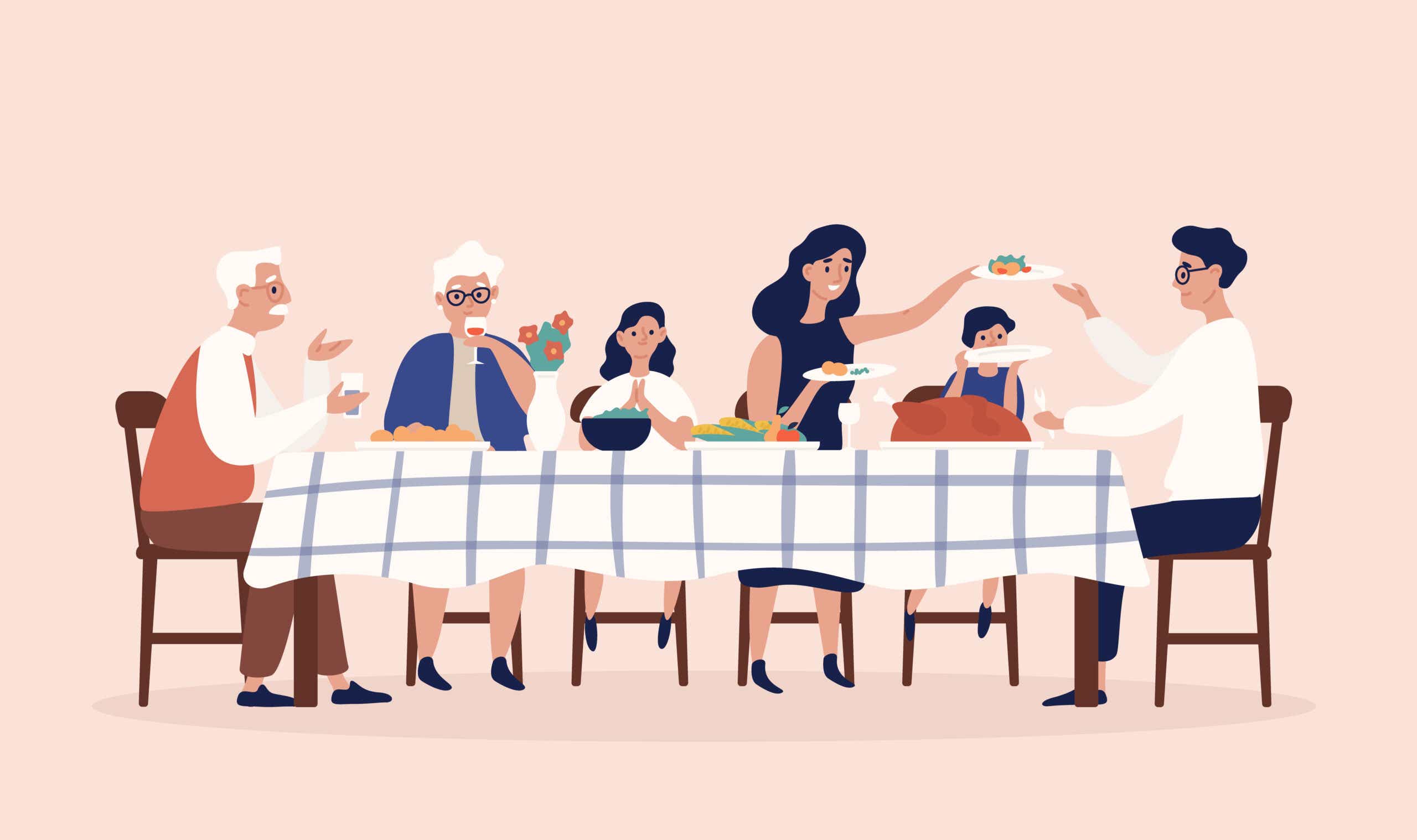If you’re experiencing anxiety surrounding this holiday season, you’re not alone. Though we've come a long way since last year when the U.S. saw an "unprecedented" spike in Covid-19-related hospitalizations during the holidays, there are still some concerns around family gatherings and travel. This is especially true amid the continued rollout of vaccines among kids as another 28 million children ages 5-11 have now become eligible.
That’s why we spoke to four experts — including two epidemiologists and an infectious disease specialist — to help give us some insight into what to expect this holiday season, and how you can be proactive about making it the best one yet. After all, Dr. Anthony Fauci, the nation’s top infectious disease expert said it himself: fully vaccinated Americans can “feel good” about gathering together.
But you should still proceed with caution. Dr. Fauci also warns of a "double whammy" affecting even the vaccinated because of vaccines' waning immunity combined with the highly transmissible delta variant, and infectious disease epidemiologist Abigail Norris-Turner, Ph.D. believes we should heed his warnings.
"It's important for people to not have maybe the same level of fear that they had a year ago, but to be really aware that COVID is very, very, very much present in our social spaces right now and spending an extended period of time unmasked together really raises the chance of transmission," says Dr. Norris-Turner.
So, how can you prep for what might be your first holiday in person with loved ones in two years? Read on for expert tips.
Evaluate comfort levels...and expect uncomfortable conversations
This really depends on your family and the setting. Dr. Norris-Turner says though she's fully vaccinated, she wouldn't feel comfortable going unmasked at a gathering with a group who isn't vaccinated. She said in this type of situation she would stay masked and opt to eat in a different space.
She also advises considering who's in your household and assessing what their risks might be. For instance, if you or someone in your pod has an underlying health condition, you might want to seriously consider not going to a holiday gathering at all. "Those folks both have lower protection from the vaccine and higher risk of really serious outcomes if they acquire COVID-19," she explains.
It's best to get uncomfortable conversations surrounding whether to wear a mask if you're fully vaccinated out of the way before you meet with family and friends. "You shouldn't assume what others consider safe practice. Have those conversations ahead of time, so that people have opportunities to change plans or make their own plan," Dr. Norris-Turner says.
Buy at-home Covid-19 tests
Since vaccinations don't completely protect against the transmission of Covid-19, another important thing to do is make sure you get tested before going to a gathering. Rebecca Schein, MD, who's a pediatric infectious disease specialist, recommends what are known as point of care tests that you can buy over the counter. They generally come in a two-pack, so you take an initial test and then repeat the test in 48 hours. "If you do both, that'll make it much less likely that you get a false negative," she tells us.
But finding a test, particularly rapid tests, could prove to be no easy task with the ongoing supply chain issues that are clogging U.S. ports and leading to shortages across industries. Adding to this strain, this supply was drained by the Delta variant that led to an uptick in cases and subsequent testing. That's why if you see any Covid-19 tests, you should pick them up, according to health chief executive Jason Feldman, whose virtual healthcare company provides coronavirus tests.
"You just don't want to be in the last minute situation, because what people may choose to do is risk that chance of exposing others who are immunocompromised or who are at risk,” he says.
At the same time, if you can easily access a testing center and feel comfortable doing so, consider going that route before the holiday. Don't hoard the at-home tests for no reason, leave them for people who can't go to get tested in-person.
Don’t be afraid to cancel plans last minute
Claire Boogaard, MD, who is a medical director at the Children's National Hospital, recommends having a contingency plan for what to do if and when someone develops symptoms. She said it’s important to stay “flexible and resilient,” especially those who have kids. “Your kids are watching and if you handle it well, they'll handle it well,” she tells us. “So just be prepared with plans A, B, and C.”
The best and safest thing you can do if you or a family member wakes up sick the day of is to obviously stay home and cancel plans. But what do you do if you've already traveled to see your family and that's not an option? Dr. Schein recommends avoiding any physical contact like hugging or kissing as well as social distancing and masking up.
But if everyone is completely healthy, Dr. Norris-Turner sees no reason not to gather, emphasizing that these social gatherings are important for mental health. She has a point: a recent report found that the pandemic has caused an estimated 53 million new cases of major depressive disorder and 76 million new cases of anxiety disorders.
"Epidemiologists want people to get together — we recognize the real damage of social isolation and the challenges that has brought people," she says. "We want people to come together," she added. "We just want to do it with as much mitigation in place, so that you get what you need out of that togetherness without also bringing home Covid-19."
The information provided on this site isn’t intended as medical advice, and shouldn’t replace professional medical treatment. Consult your doctor with any serious health concerns.









